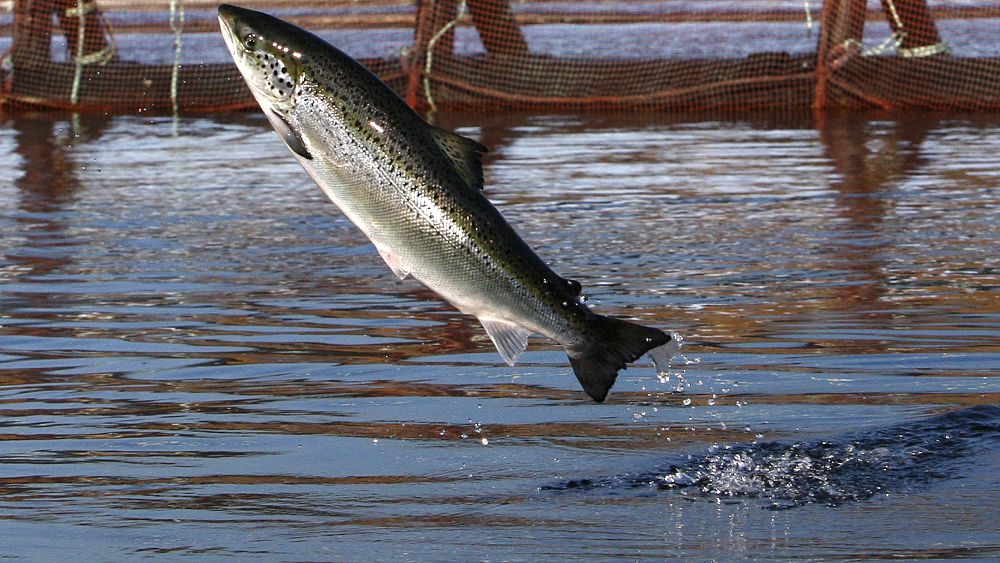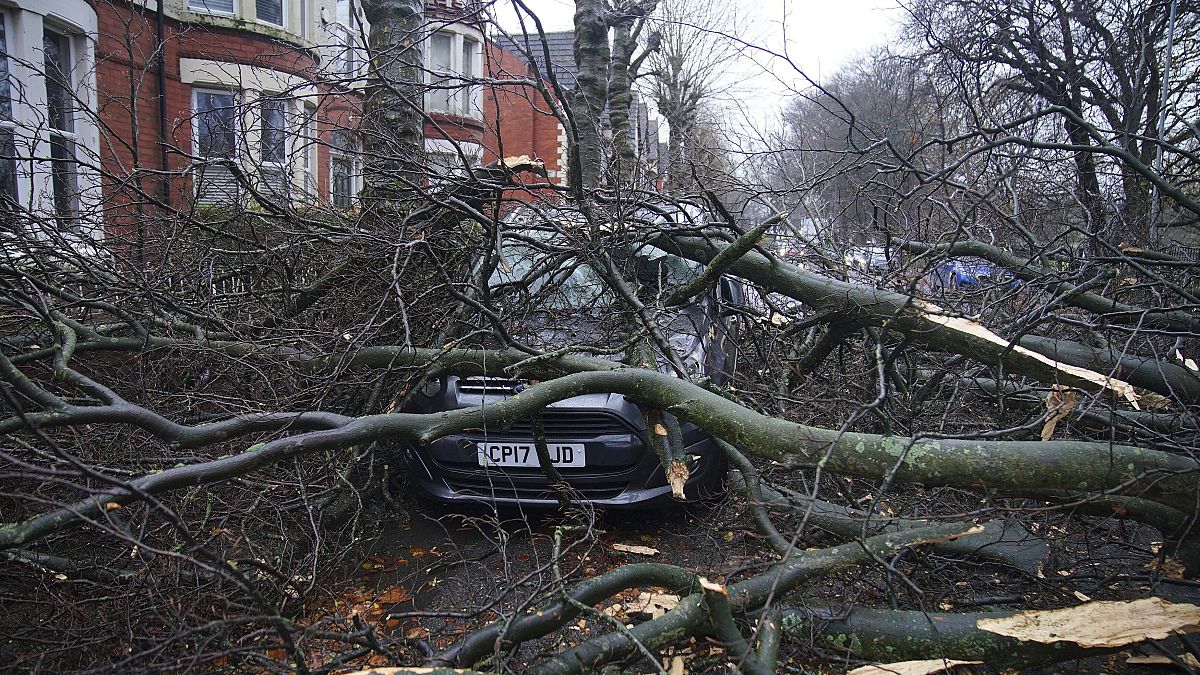Salmon fishing in Scotland threatened by rising sea temperatures

Since March 2023, Scotland’s waters have been gripped by an unprecedented Category 4 marine heatwave, causing mass marine mortalities.
For some of Scotland’s salmon farms the staggering five degree temperature increase has led to a proliferation of sea lice infestations.
A recent investigation uncovered alarming evidence on five farms, where fish were observed covered in the invasive sea lice.
“Marine heatwaves are becoming more frequent, widespread, and lasting longer. This creates an optimal breeding environment for sea lice, leading to rampant reproduction,” Lex Rigby, the head of investigations at Viva!, a vegan campaigning charity, said.
“These parasites feed on the skin, mucus, and blood of salmon, with millions potentially released into the wider environment,” she added.
Sea lice are typically found in low densities in the wild, but they are more prevalent in farms and the rising temperatures help them multiply. They weaken the fish which can caused them to die prematurely.
Salmon deaths doubled in 2022, a record low for the species. And in 2023, the figure worsened 8.9 million fish had died prematurely on salmon farms by September alone.
While salmon farming was once seen as a potential solution to helping wild stocks replenish, sea lice are now making it a problem as they’re spreading from the farms to wild salmon.
“Salmon farming was once hailed as a kind of salvation. Yet, as complexities unravel, we’re witnessing a continued decline in both the numbers and size of wild salmon. It’s truly tragic,” said John Rowley Conwy, the director of Klere, a sustainability consultancy.
The salmon industry says it prioritises the well-being of the fish, and stresses the technology and innovation it uses against the sea lice.
But there are other threats that come from rising sea temperatures that are threatening salmon.
Jellyfish thrive in warmer waters and they can both sting the salmon and block their gills.
Across Europe and the world rising sea temperatures in 2023 have tested marine ecosystems and aquaculture.
“Any rise in temperature is an extra stress, and any sudden big rise that gets beyond what the animals are used to can cause stress to the point where they will die,” Dr Sevrine Sailley, an ecosystem modeller at Plymouth Marine Laboratory, said.
“We could see mass mortality of aquaculture whether they be fish or shellfish,” she added.
Source: Euro News















